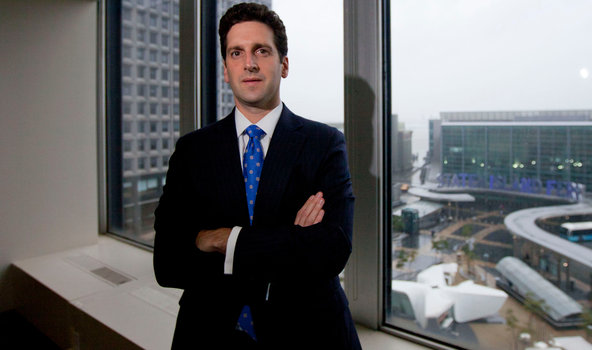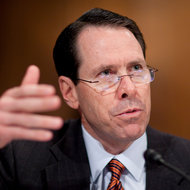The agency says it is studying the applicable law with the Justice Department. But it is urging same-sex couples to apply for benefits anyway — even if they live in a state that doesn’t recognize their marriage.
What’s more, the agency also is inviting applications not just from those in same-sex marriages, but also those in other legal same-sex relationships, like civil unions or registered domestic partnerships.
Applying as soon as possible is important, because if you are ultimately found eligible, you can get benefits retroactive to your filing date.
“In the coming weeks and months, we will develop and implement additional policy and processing instructions,” the message says. “If you are in a same-sex marriage or other legal same-sex relationship, even if you live in a state that prohibits same-sex marriage, we encourage you to apply right away.”
“That’s huge,” said Mary Bonauto, civil rights project director with the Gay Lesbian Advocates Defenders (GLAD) in Boston.
Social Security offers a range of financial benefits for spouses and families. You can file for retirement benefits based on your spouse’s work record, for instance, which entitles you to more money if your spouse earned more than you, or to delay tapping your own benefits.
You can also receive “surviving spouse” benefits after your spouse dies. For example, you can receive a one-time payment of $255. And you can get your deceased spouse’s higher retirement payout instead of your own.
The Social Security Administration’s Web site says it is now processing some spousal retirement claims and paying them when due. If you and your spouse live in a state where same-sex marriage is sanctioned, and you meet other criteria (see below), the application should be straightforward. An unresolved question, however, is whether couples who were legally married in one state but moved to another state that doesn’t recognize gay marriage can get the same benefits. That’s because the Social Security Administration currently uses a “place of residence” standard in deciding spousal benefits.
Susan Sommer, senior counsel with the gay rights group Lambda Legal, said Social Security had instructed its staff to accept and hold such applications, pending further legal clarification. “We’re awaiting guidance, and we’re really hopeful,” she said.
The agency also is holding other types of applications for now, like those for survivor benefits when one spouse dies. However, Ms. Bonauto said she was encouraged by the case of 83-year-old Herb Burtis, a musician and voice teacher in Western Massachusetts. Mr. Burtis had applied for survivor benefits after his husband died in 2008. (They married in 2004, when Massachusetts legalized same-sex marriage). His late husband’s monthly retirement benefits were $700 higher because he had earned more than Mr. Burtis, and Mr. Burtis filed a claim for the extra payment. His application was initially denied. But he became a plaintiff in a lawsuit that successfully challenged the Defense of Marriage Act, or DOMA, which was struck down in June by the United States Supreme Court. He is now getting the extra money, and also received a lump-sum payment for the last five years.
Ms. Bonauto said there was “every reason to expect” that the agency would eventually process and pay survivor benefits to other eligible same-sex applicants.
Here are some questions to consider:
■ How do I know if I’m eligible for benefits?
You must meet certain criteria. For instance, to receive spousal retirement benefits, you generally must be at least 62 and have been married for at least 12 months; for the survivor’s benefit, you must be at least 60 and have been married for nine months. If you meet age and duration requirements, Ms. Bonauto said, you should apply for benefits, even in the face of other uncertainties.
■ How do I apply?
You can apply online at www.ssa.gov forspousal retirement benefits. But you must apply for survivor’s benefits by calling or visiting a local Social Security office; make an appointment before you go. GLAD advises you to bring a copy of your marriage license, or your civil union or domestic partnership certificate, and a copy of your spouse’s death certificate.
■ What if I have questions?
Contact the regional communications director for your state. A list is available on the Social Security Web site.

E-mail: yourmoneyadviser@nytimes.com
Article source: http://www.nytimes.com/2013/09/17/your-money/same-sex-couples-are-urged-to-apply-for-social-security-spousal-benefits.html?partner=rss&emc=rss




